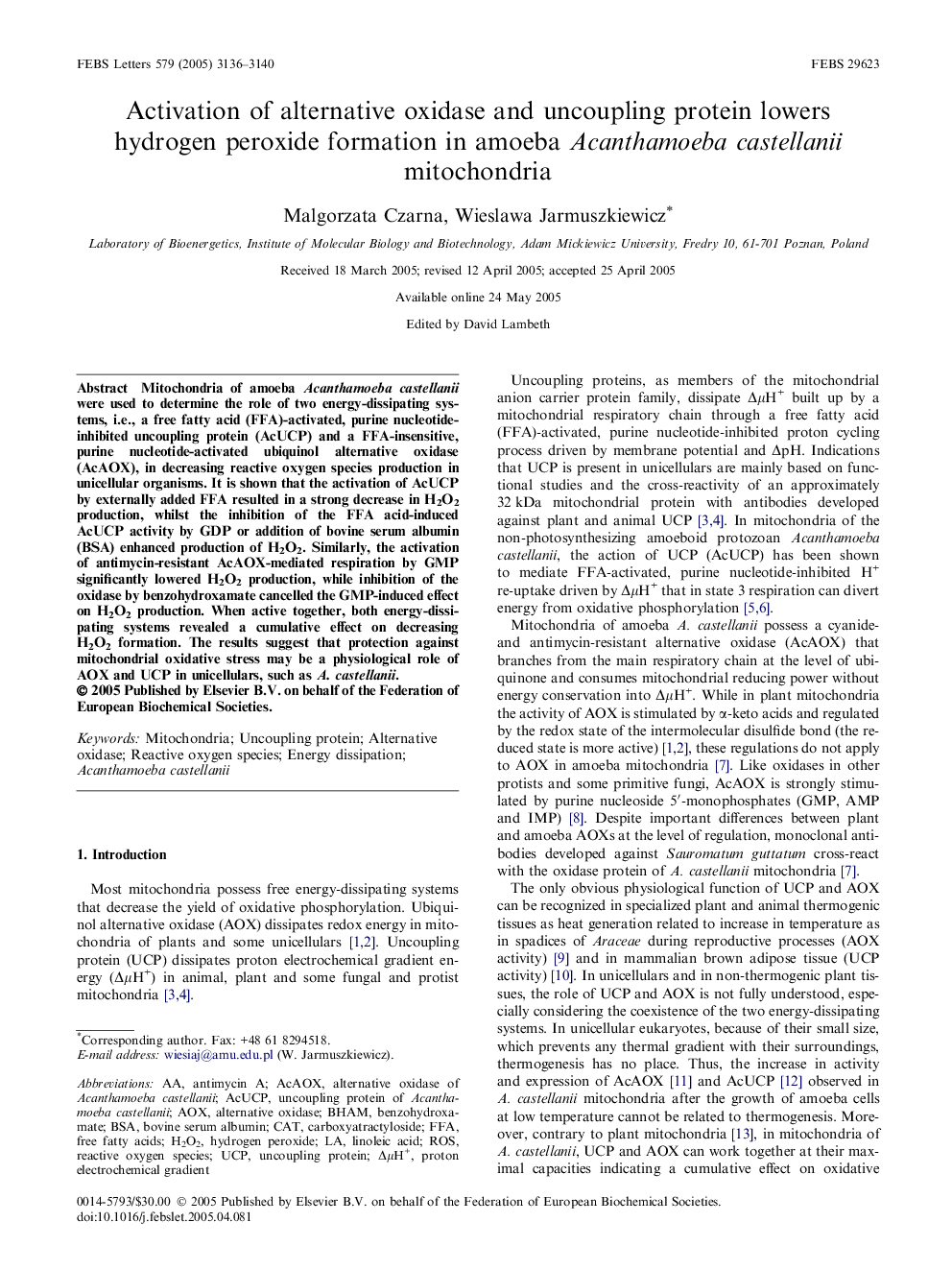| Article ID | Journal | Published Year | Pages | File Type |
|---|---|---|---|---|
| 2053233 | FEBS Letters | 2005 | 5 Pages |
Mitochondria of amoeba Acanthamoeba castellanii were used to determine the role of two energy-dissipating systems, i.e., a free fatty acid (FFA)-activated, purine nucleotide-inhibited uncoupling protein (AcUCP) and a FFA-insensitive, purine nucleotide-activated ubiquinol alternative oxidase (AcAOX), in decreasing reactive oxygen species production in unicellular organisms. It is shown that the activation of AcUCP by externally added FFA resulted in a strong decrease in H2O2 production, whilst the inhibition of the FFA acid-induced AcUCP activity by GDP or addition of bovine serum albumin (BSA) enhanced production of H2O2. Similarly, the activation of antimycin-resistant AcAOX-mediated respiration by GMP significantly lowered H2O2 production, while inhibition of the oxidase by benzohydroxamate cancelled the GMP-induced effect on H2O2 production. When active together, both energy-dissipating systems revealed a cumulative effect on decreasing H2O2 formation. The results suggest that protection against mitochondrial oxidative stress may be a physiological role of AOX and UCP in unicellulars, such as A. castellanii.
